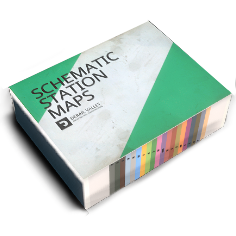|
|
| Line 1: |
Line 1: |
| 電阻和回生制軔是使{{pll|Rail Vehicle Types|動力鐵路車輛}}{{pll|Braking Overview|減速}},,不會{{pll|Wheels & Brakes Damage|消耗}}或使{{pll|Brake Shoes|軔塊過熱}}的替代方法之一。此為{{pll|Traction Motors|電力}}車輛,包含{{pll|Powertrains Overview|柴油電力}}車輛上的{{pll|Dynamic Brake|動力制軔}}方式。 | | 電阻和回生制軔是使{{pll|Rail Vehicle Types|動力鐵路車輛}}{{pll|Braking Overview|減速}},,不會{{pll|Wheels & Brakes Damage|消耗}}或使{{pll|Brake Shoes|軔塊過熱}}的替代方法之一。此為包含{{pll|Powertrains Overview|柴油電力}}車輛等{{pll|Traction Motors|電力傳動}}車輛的{{pll|Dynamic Brake|動力制軔}}方式。 |
Revision as of 09:14, 16 April 2025
電阻和回生制軔是使動力鐵路車輛 減速 ,,不會消耗 或使軔塊過熱 的替代方法之一。此為包含柴油電力 車輛等電力傳動 車輛的動力制軔 方式。
